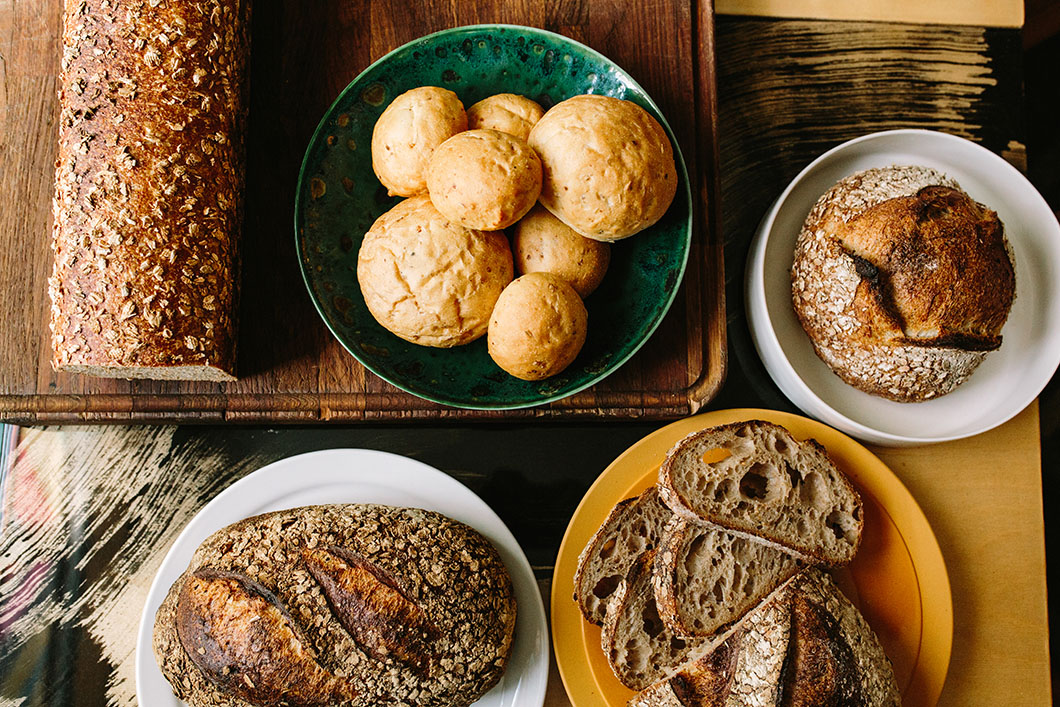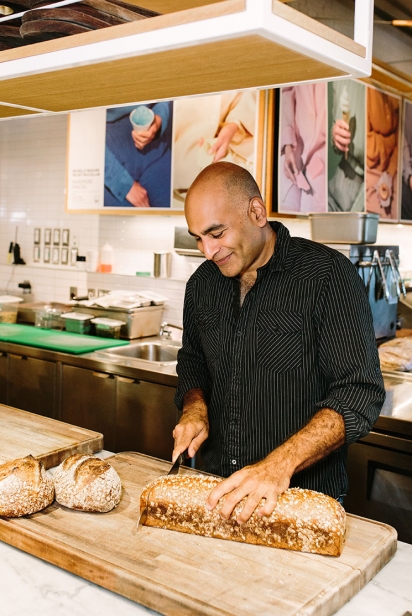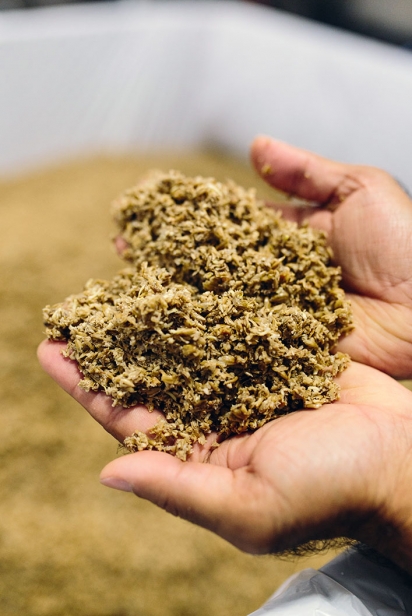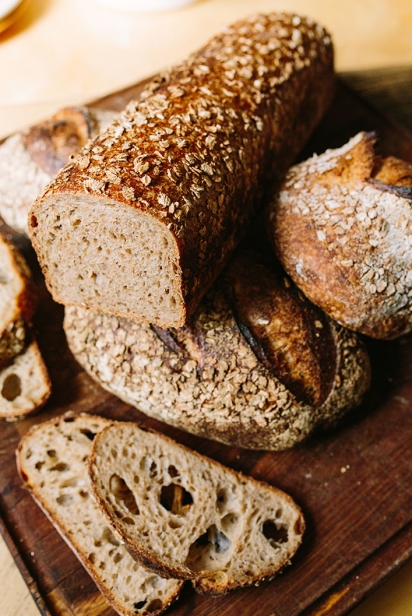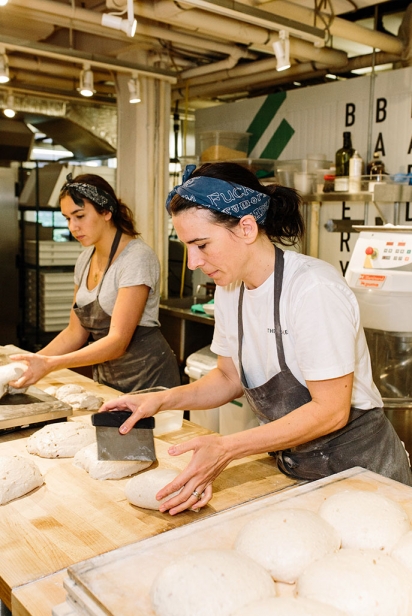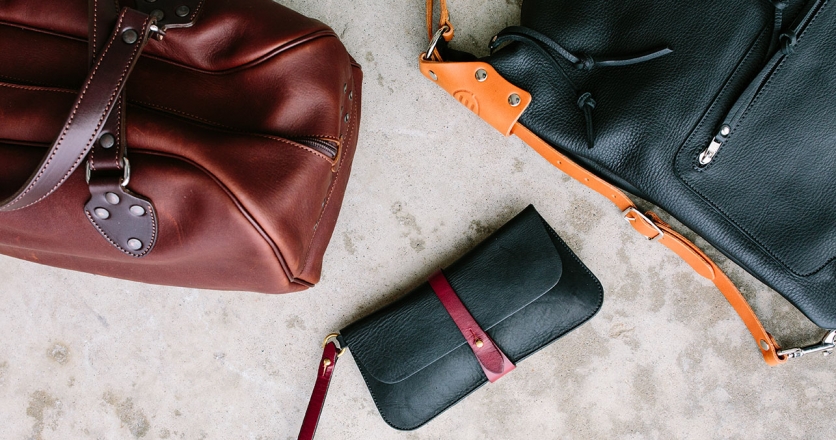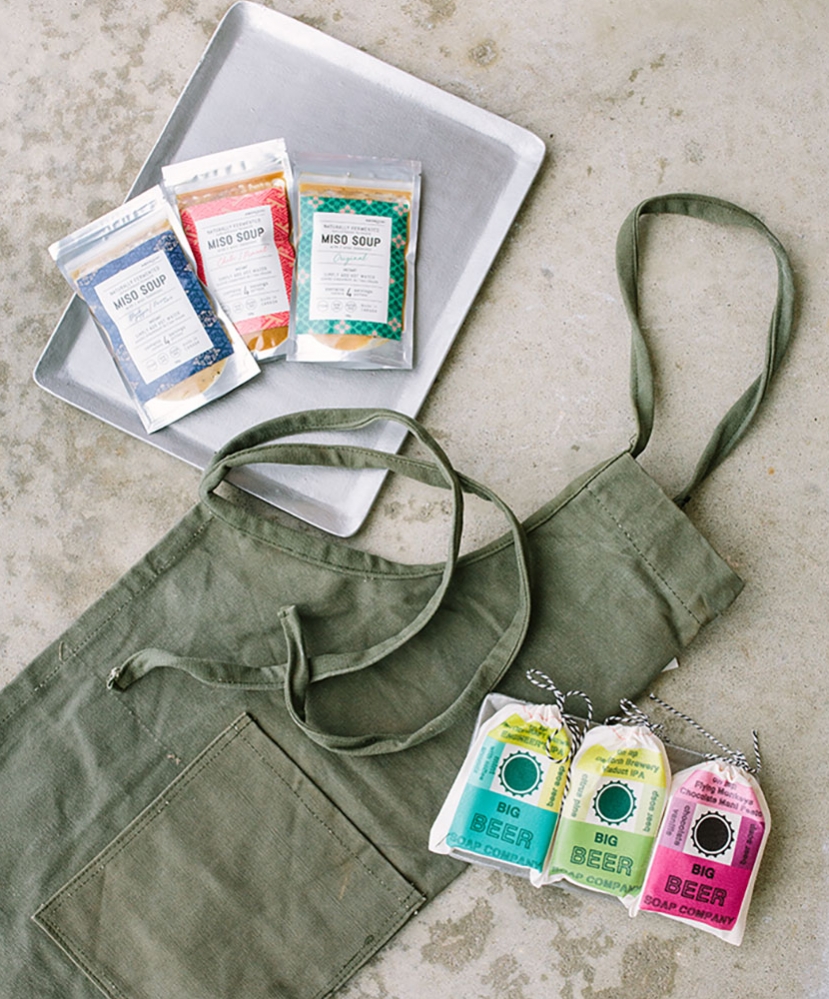Recycle, Re-Use, Re-Gift
Our gift guide has ideas for planet-friendly seasonal giving that leaves a smaller footprint by using repurposed waste and by-products from food and beverage production to make everything from soap to bread. We call it eco-generosity, and it will make you a gifting holiday hero.
Spent Goods Company
Cheers to the Spent Goods Company for inviting customers to "eat, drink and save the planet." The company uses leftover grain from Henderson's Brewery to produce its naturally leavened Beer Bread Organic Sourdough baked by Drake Commissary, on Sterling Road. The bread integrates 20 to 30 per cent brewery barley grains, traditionally destined for a landfill.
Spent Goods calls itself a food transformer, its goal is to find complementary businesses with which to partner and make new products using their by-products.
In addition to the sourdough, the business also sells crunchy butter beer crisps made with the spent grain and there's a new four-wholegrains loaf and nut-free breakfast crunch granola made with pulp from local juicer Tender Love & Carrots.
"All juicers could do something like this and offer it in-store or to other businesses like Spent Goods," says company managing director Dihan Chandra. "We just need consumers to try and then demand it."
The company is always exploring new ideas, adds Chandra. Coming soon, spent grain-based pizza dough and pulp-based doggie treats. He says Spent Goods is committed to finding solutions around reducing food waste and cutting greenhouse gas emissions by diverting some of the 185 million kilograms of spent grains that end up in Ontario's landfills yearly.
"If we took those spent grains and made food with it, we could feed every Ontarian two loaves of bread every week, every year," Chandra explains.
He admits they're barely making a dent in terms of the amount of spent grain produced versus what they're using, but "I believe we're headed in the right direction," he says. Though they don't need any more spent grains at this time, Chandra says their solution is scalable, they "just need end consumers to demand these types of spent goods."
"Our consumers think we have a great product and love the concept of smart use of resources and less waste, regardless of whether it can reduce climate change or [provide] health benefits," Chandra says. It's such a great product that at the time of printing Spent Goods had been nominated for the "Best Bread" category in NOW Magazine's annual reader's choice awards, alongside Toronto mainstays such as Blackbird and Mabel's.
The bread is available at the Drake Commissary, Evergreen Brickworks, Fiesta Farms, Sweet Potato and Unboxed Market.
spentgoods.ca
Enright Cattle Company
Family-owned Enright Cattle Company in Tweed, Ont., is committed to sustainability. Even an old grain bin on the property is now a nifty retail location.
When it became increasingly difficult for the beef producers to sell cattle hides to keep them out of landfills as waste, owners Darold and Kara Enright decided to also go into the leather business.
Earlier this year, Barrett Hides, a Barrie-based leather processor closed. It left the majority of small and medium-sized abattoirs across Ontario struggling to get rid of a growing number of unwanted hides.
"This is one of the biggest challenges our abattoirs have faced in the last 40 years," says Franco Naccarato, executive director of the Ontario Independent Meat Processors.
"There are no real solutions out there other than burying them, disposal or composting them. Burying them is not a long term solution; disposal isn't a sustainable model and it is best if it can be avoided, and composting seems to be the best option, but resources are needed to help farmers and abattoirs get the hides to compost sites that can manage them," Naccarato explains.
For the Enrights, they found a solution in neighbouring Ottawa. The leather is locally tanned and James M. Brooks, an artisan based in Chelsea, Que., uses it to make a line of products from cuffs and wallets, purses and satchels to leather knife rolls and aprons. Prices start at $39.
"They're really high-quality items," Kara says.
The rendered tallow from processing is used to make rosemary- mint, lemongrass and lavender soaps, currently available online.
"People love the story behind it when they hear where the soap came from," Kara says. "It was raised right here, and it's sustainable."
Nothing goes to waste on the farm. They also sell soup bones, and the animal offal goes into gourmet dog food and treats.
The leather bags are available at three retailers in Ottawa, Kingston and Stirling, Ont., as well as online.
enrightleather.com
Abokichi Inc.
Fumi Tsukamoto and Jess Mantell of Abokichi use sake kasu, the yeast left after sake-making, as the base for their creamy instant miso.
The kasu comes from the Ontario Spring Water Sake Company in the Distillery Historic District, part of Abokichi's company goal to reduce waste by 1.2 tonnes.
"We want to do our best with food waste," Tsukamoto says. "We love doing experiments."
She says Abokichi miso soup is an ideal balance for seasonal excess; savoury and low-calorie, it melts quickly in hot water, without the gritty residue of some other miso products.
A SIAL Innovation 2019 finalist, it's also the only fermented hot drink on the market, Tsukamoto says, and a savoury fix for "the 3 p.m. slump."
Each pouch makes four servings and comes in three flavours: original, black pepper and chili. Tasting sets are also available.
The miso soup joins Abokochi's all-natural Okazu, an umami- rich chilli, miso and sesame oil condiment used as a rice-topper in Japan. It's excellent on eggs or drizzled on baked salmon.
Tsukamoto and Mantell started in 2013, making onigiri (Japanese rice balls) to sell at farmers' markets. Disappointed with the quality and additives in imported chili oils, they made their own with Okazu, and that's when Abokochi was born.
Both products are widely available, including at Pusateri's, Evergreen Brickworks and at other retailers across the city and online.
abokichi.com
Big Beer Soap Company
It's a shame, really, but it does happen — beer inside bottles and cans expires. But instead of shedding tears and pouring it down the kitchen drain, a Toronto business is repurposing some of that expired beer to make you feel fresh and clean.
Toronto's own Big Beer Soap Company works in small batches using traditional methods to create an ever-changing assortment of artisanal soaps — all made using beer from Ontario craft breweries. Seasonal product offerings include a Citrus Pine- scented bar made with Danforth Brewery's Viaduct IPA and a Lemongrass variety infused with Mill StreetOrganic Lager. And the company isn't bound to bar soaps — it also makes liquid soaps and even shampoos imparted with your favourite local ale, pilsner or lager.
Why beer in soap? According to the company's founder, Clare Raman, beer has been used for thousands of years to improve skin conditions. The oil and minerals in hops provide anti-inflammatory properties, which leave the user with soft and radiant skin. The brewer's yeast in beer can kill acne-causing bacteria. What's more, barley is high in niacin and selenium, which promote smoothness and skin elasticity. Plus, the sugars in alcohol help produce a sudsy soap with a rich lather.
Big Beer Soap uses the traditional cold-process method to make its products — this involves mixing a base (lye) with an acid (oils) to produce a salt (soap). The company only uses all-natural oils, such as coconut, avocado or olive, to make your skin even softer. Additionally, all of its products are free of sulphates, paraben and detergent. Now that's something to celebrate.All soaps are available on Big Beer Soap's website or at select Ontario breweries and stockists. The company also offers regular soap-making workshops in the Toronto area and is available for private soap-making functions as well. "We all cook and eat every day," Raman says. "We all bathe every day, but most of us don't know how to make soap."
bigbeersoapcompany.com
Puebco
Founded in Tokyo, Japan, in 2007 by designer Hirotaka Tanaka, the Puebco brand uses found and recycled materials to create renewed home and lifestyle items, inspired by retro-industrial style and Japanese minimalist esthetic.
The company's philosophy takes pride in giving new life to used materials and celebrates the uniqueness of every product it makes. According to the founder, just as people are the sum of their lived experiences, the objects with which we share our homes should carry that same sense of history and weight. By using recycled materials from around the world and hand-made processes, Puebco infuses objects with the feel of multiple lifetimes and a sense of history that makes each piece different. With Puebco products, there are no imperfections, just details that are meant to be there by design, says the company's website.
Among the brand's many kitchen products, its versatile baking trays — which come in two sizes — are made using recycled aluminum and are originally modelled after a vintage tray sourced at an antique show in the U.K.
Also for use in the kitchen, the vintage tent fabric aprons are made using military camping tents shipped from various countries in Europe to India. Puebco digs through thousands of tents to select ones that are appropriate to be repurposed as aprons. Uniquely weathered, these are then hand-cut and sewn, resulting in each apron being one-of-a-kind.
"I was immediately struck by Puebco when I discovered the brand five years ago," says Carlo Colacci, the Toronto-based retailer who helped launched Puebco in Toronto earlier this year. "Not only do I love its distinct style and utilitarian designs, but it's important to me to find and share brands that are working to cut down on waste while still creating new and fresh products."
All products are available for sale on Puebco's newly launched Canadian website.
puebco.ca


